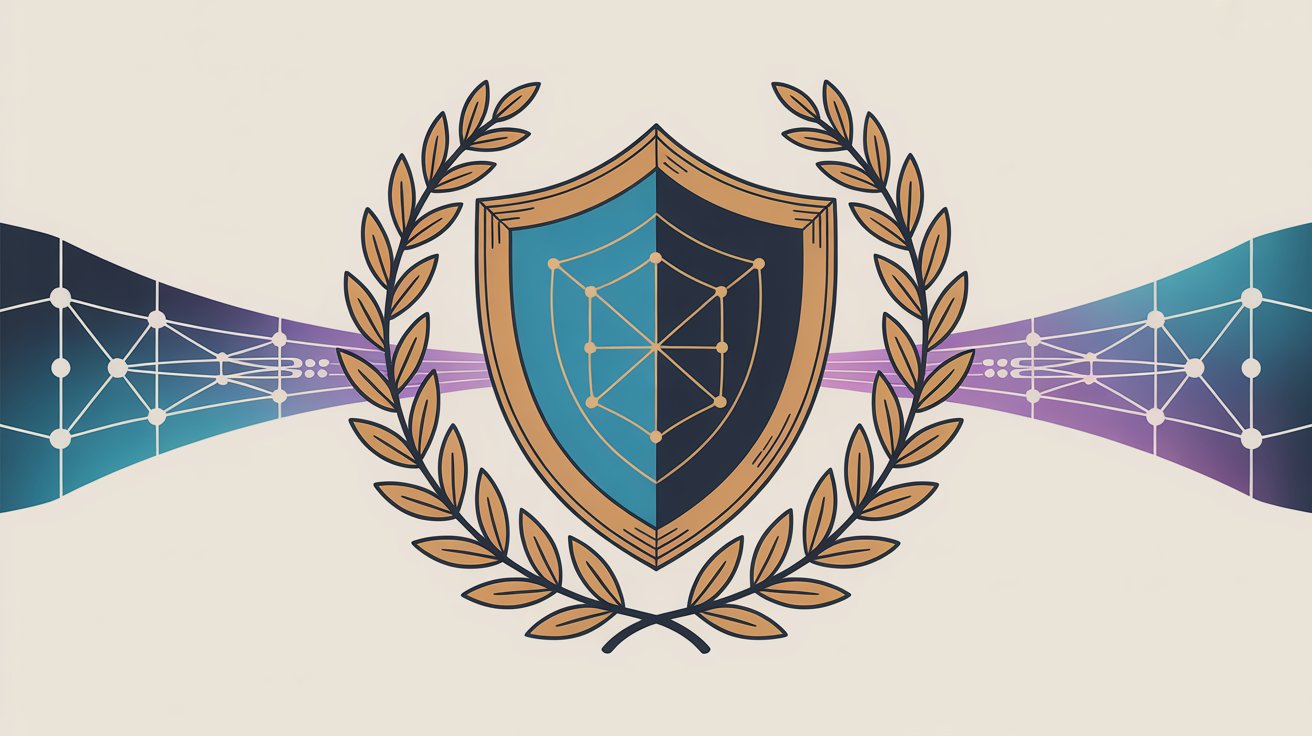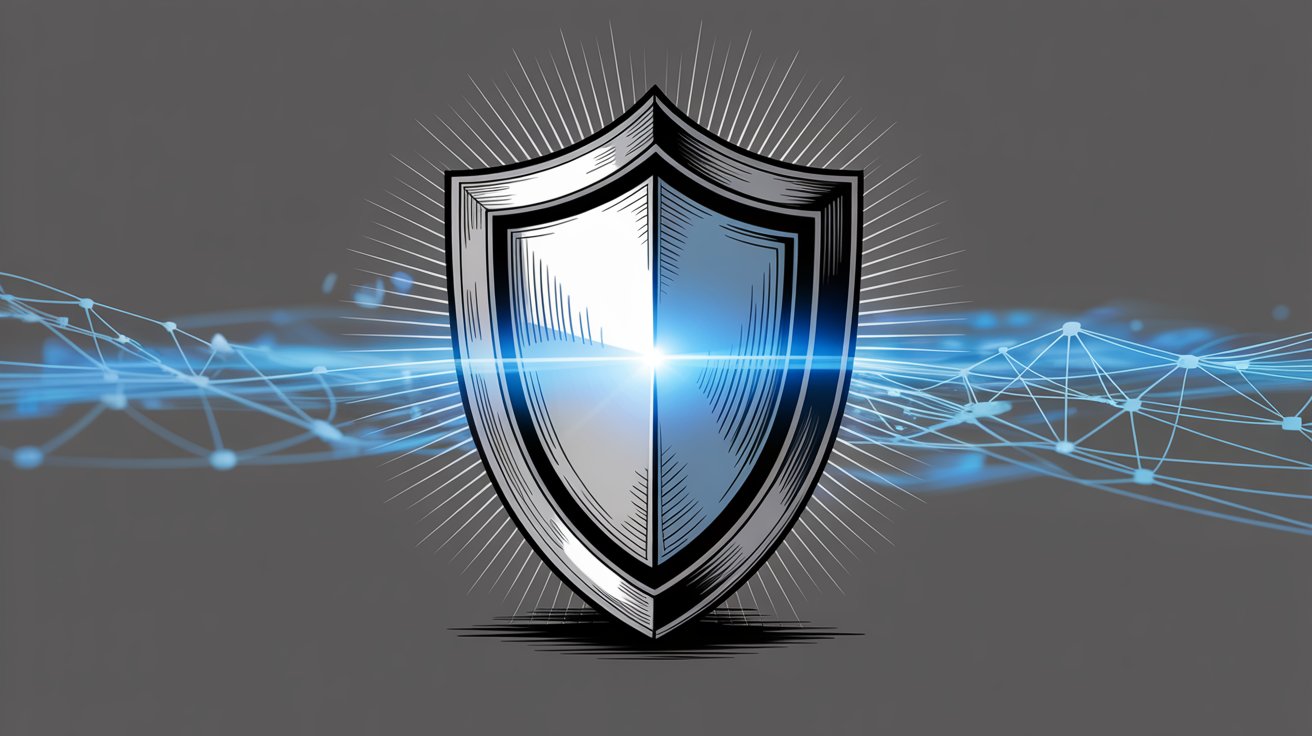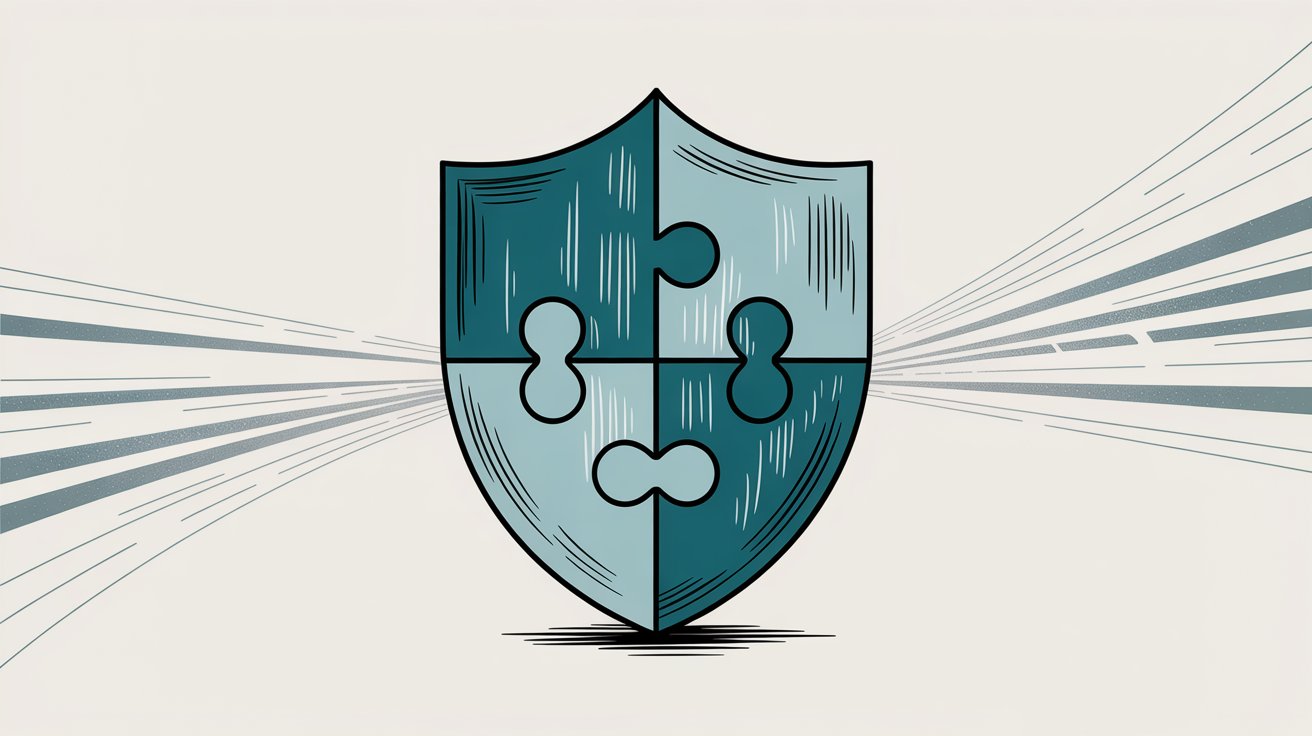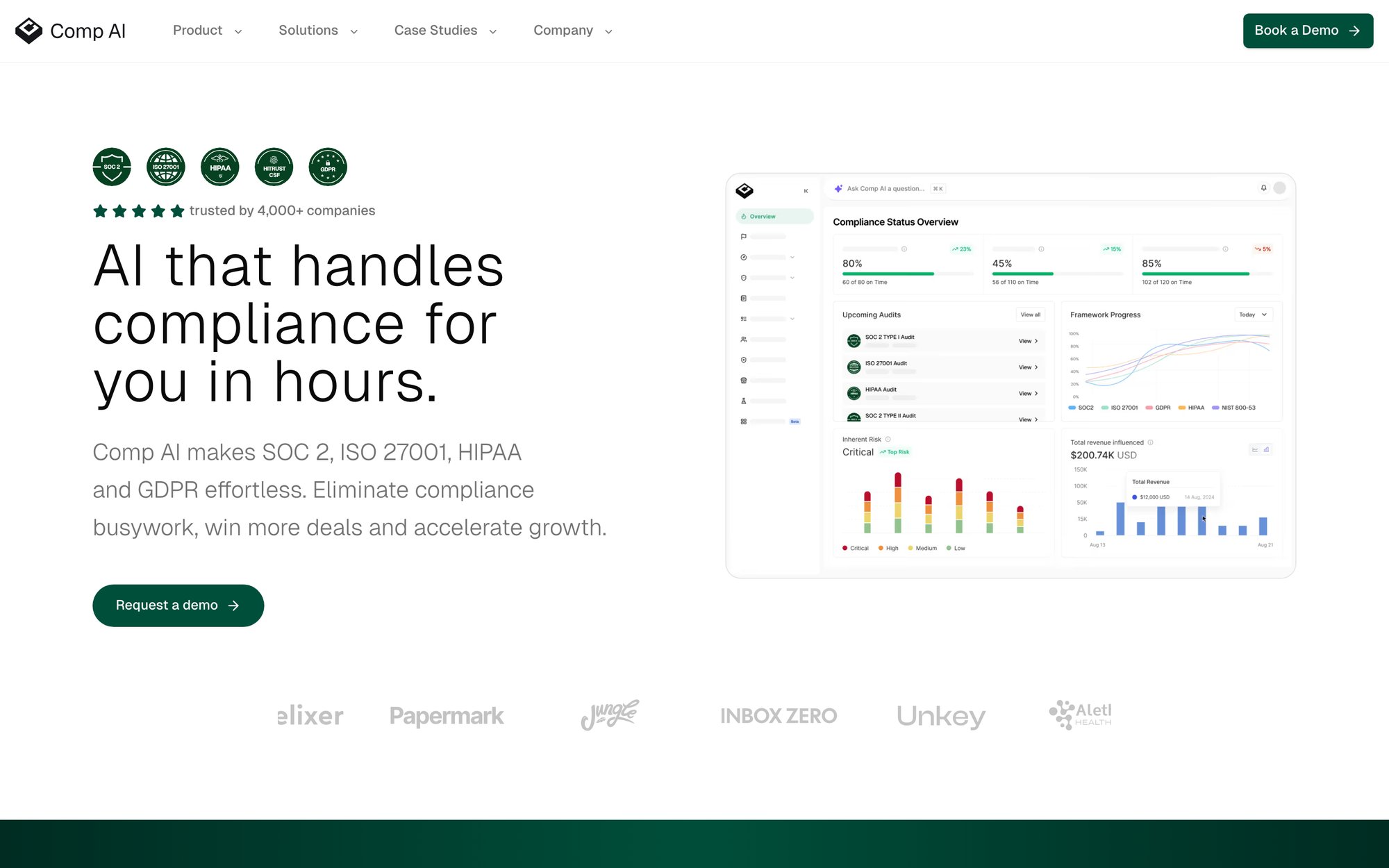In 2025, ISO/IEC 27001 certification isn't just another compliance checkbox. It's a strategic investment that can transform how your business operates, how customers perceive you, and how quickly you can close deals.
The numbers tell a clear story: 81% of companies worldwide either have ISO 27001 certification or plan to pursue it in 2025, up from 67% in 2024. This surge isn't random. Organizations are discovering that ISO 27001 delivers tangible business benefits that go far beyond fortifying cybersecurity.
Let's break down exactly what ISO 27001 certification brings to the table, backed by recent data and real-world insights that matter in 2025.

What is ISO 27001 and Why Does It Matter in 2025?
ISO/IEC 27001 is the internationally recognized standard for Information Security Management Systems (ISMS). Think of it as a comprehensive framework for managing information security across your entire organization.
The 2022 revision (the current version you'd certify against today) reorganized controls around four clear themes: organization, people, physical, and technology. This structure makes implementation and ongoing management far more intuitive than earlier versions.
You follow a three-year ISO 27001 certification process: an initial Stage 1 and Stage 2 audit, then annual surveillance audits in years one and two, with full recertification in year three. Understanding this cycle helps you budget properly and plan continuous improvements quarter by quarter.
How ISO 27001 Certification Strengthens Your Security Posture
Here's what really matters: ISO 27001 forces you to take a systematic approach to risk management. You identify assets and threats, implement appropriate controls, and continuously monitor their effectiveness. This proactive stance makes you significantly less vulnerable to breaches.
The financial impact is real. Organizations with ISO 27001 reduce data breach costs by up to 48% compared to non-certified companies. When the average breach cost hit $4.88 million globally in 2024, even modest improvements in your security posture translate to massive financial protection.
ISO 27001 covers all aspects of security:
• Technical safeguards like encryption and access controls
• Human factors including training and incident response
• Operational procedures for business continuity
By implementing this framework, you become risk-aware and address weaknesses before they become problems, rather than reacting after damage is done.

How ISO 27001 Simplifies Regulatory Compliance Across Multiple Frameworks
In 2025, the regulatory landscape is more complex than ever. GDPR fines can reach up to 4% of annual global revenue. California's CCPA/CPRA carries significant penalties. And newer frameworks like NIS 2 and DORA are raising the bar for security governance.
ISO 27001 certification helps you meet these requirements in one centrally managed framework. Instead of juggling dozens of siloed compliance requirements, you implement security controls that address multiple regulatory obligations simultaneously.
For example, an ISO 27001 ISMS directly supports NIS 2's requirements for risk management, incident response, and supply chain security. For financial entities, the framework provides the governance backbone that DORA requires (which became applicable on January 17, 2025).
This means you're far less likely to face fines or legal penalties. And if an incident does occur, you can demonstrate due diligence and structured security practices, potentially mitigating enforcement actions. In one survey, 42% of organizations said regulatory compliance was a top driver for implementing ISO 27001.
How ISO 27001 Certification Builds Customer Trust That Drives Revenue
An ISO 27001 certificate is a powerful trust signal. In an age of constant data breaches, customers, investors, and partners are understandably cautious about sharing their information. Your certification provides independent, internationally recognized validation that you take security seriously and follow global best practices.
This credibility boost often becomes the deciding factor when prospects choose between you and a competitor. Studies consistently show consumers prefer companies who demonstrate robust security. By displaying your ISO 27001 certification on your website and sales materials, you immediately reassure potential clients.
The certificate acts as a "badge of trustworthiness" that clearly signals to partners, vendors, and clients that you take information security seriously. This means:
• Shorter sales cycles with less hesitation during negotiations
• Stronger loyalty from existing customers
• Increased conversion rates for enterprise deals

In sectors like fintech, healthcare, and cloud services, ISO 27001 has become table stakes. One SaaS provider reported that after achieving certification, they "fostered an environment where clients feel confident sharing their information, free from concerns about cyber threats or data theft."
How ISO 27001 Creates Competitive Advantages and Opens New Market Opportunities
ISO 27001 helps you stand out from competitors who lack recognized security credentials. Many organizations, especially enterprises and government agencies, now require ISO 27001 certification from their vendors. It's often a non-negotiable prerequisite in RFPs and contracts.
Being certified means you automatically qualify for these opportunities instead of being disqualified at the first screening. Certified companies report fewer hurdles in procurement processes, shorter sales cycles, and access to deals that would otherwise be out of reach.
ISO 27001 can directly drive revenue growth. As one analysis noted, the certification transforms security from a defensive cost center into a business enabler. It opens doors to lucrative markets in finance, healthcare, and government where security accreditation is mandatory.
Many organizations include ISO 27001 compliance as a prerequisite for partnership. By being certified, you expand your access to new markets and clients with high standards, leaving non-certified competitors behind.
The international reach matters too. ISO 27001 is recognized across 150+ countries, unlike some local standards. If your growth strategy involves global customers, this certification provides a common language of trust anywhere you do business.
Real-world example: a cloud software startup found that enterprise prospects kept asking for security attestations. After getting ISO 27001 certified, they saw a 50% increase in conversion rate for enterprise deals because procurement teams no longer demanded lengthy security assessments.The certificate "significantly reduces the burden of these assessments by providing standardized evidence of security capabilities."
How ISO 27001 Drives Operational Efficiency and Cost Savings
While external benefits get most attention, ISO 27001 also drives major internal efficiencies. Achieving certification requires you to examine and optimize your information security processes closely. Companies frequently discover redundancies, gaps, or outdated practices during this process.
| Approach | Evidence Collection | Policy Management | Audit Readiness | Annual Cost |
|---|---|---|---|---|
| Manual Process | Weeks of screenshots and exports | Ad hoc, inconsistent procedures | Scrambling when auditors arrive | $50k-$100k consulting |
| Automated with Comp AI | Hours with AI-powered collection | Auto-generated, compliant policies | Continuous monitoring, always ready | $3k-$8k platform |
| Time Savings | 90%+ reduction | 95%+ reduction | Continuous vs. reactive | 85%+ cost reduction |
You might consolidate disparate data storage procedures into one coherent policy, or formalize an access control process that was previously ad hoc. The result is a leaner operation where tasks and responsibilities are clearly defined. According to research, "earning ISO 27001 certification involves carefully evaluating and streamlining processes. This eliminates redundancies and reduces inefficiencies. Improved processes along the way can lead to cost savings."
ISO 27001 mandates documentation and regular audits, fostering a discipline of "say what you do, do what you say." This rigor means people follow consistent procedures rather than improvising, leading to more predictable and higher-quality outcomes.
Another efficiency gain comes from audit readiness. With an ISMS in place, you continuously collect evidence and monitor controls. You're not scrambling when customers or regulators ask for proof of security. Regular internal audits mean you catch issues early and keep everything current. Being ISO certified can sometimes reduce the need for client security audits entirely, as many clients will accept your valid ISO 27001 certificate in lieu of their own assessments.
Proactive risk management also saves money. By fixing vulnerabilities and strengthening processes now, you avoid the far greater costs of incidents later. This approach "saves money by reducing the chances of costly breaches or fines for non-compliance."
How ISO 27001 Builds a Security-First Culture Across Your Organization
Implementing ISO 27001 isn't just about technology or paperwork. It fundamentally involves your people. One often underappreciated benefit is creating a strong security culture within your organization.
ISO 27001 requires management commitment and employee training (outlined in Clause 7 of the standard). This means everyone from the C-suite to new hires must understand their security responsibilities.
Through awareness training, clear policies, and defined incident reporting processes, ISO 27001 empowers your workforce to become the first line of defense. Employees learn to:
→ Spot phishing attempts and social engineering
→ Handle data properly according to classification
→ React to potential security issues immediately
→ Follow secure coding and deployment practices

This vastly reduces human error incidents. As one expert observed, "ISO 27001 mainstreams your organization's security culture. Security awareness training educates and empowers your workforce and third-party contractors to be the frontline defense in a cyber attack or breach."
Fostering a security-centric culture also improves morale and confidence. Staff take pride in working for a company that values protecting information. When everyone knows the procedures for reporting an incident or requesting access, it reduces confusion and anxiety.
This culture shift is sustainable. ISO 27001's model is built on continuous improvement and periodic recertification, so security awareness isn't a one-time checkbox. It becomes an ongoing aspect of employees' roles. Over time, security considerations naturally integrate into daily business decisions without constant top-down reminders.
Why ISO 27001's Continuous Improvement Model Keeps You Ahead of Emerging Threats
The job of securing information is never "finished." Technology and threats evolve constantly. ISO 27001 builds in a philosophy of continuous improvement (the Plan-Do-Check-Act cycle) that keeps your security program agile and current.
Unlike some compliance efforts that are annual point-in-time checklists, ISO 27001 requires you to constantly monitor, review, and enhance your ISMS. This means your organization is always adapting to new vulnerabilities, business changes, or emerging risks.
The Continuous Improvement Cycle:
- Plan – Conduct risk assessments and define objectives
- Do – Implement controls and security measures
- Check – Monitor, audit, and review effectiveness
- Act – Make improvements based on findings

This creates a feedback loop where each quarter (or year) your security gets stronger and more refined. As experts describe, "ISO 27001's focus on continuous improvement helps organizations stay ahead of emerging threats and changing business requirements. It demonstrates to stakeholders that certified firms maintain current and relevant security practices."
In 2025, with threats like AI-driven attacks and supply chain exploits rising, this adaptability is crucial. ISO 27001:2022 added new controls for areas like cloud security, threat intelligence, and secure coding to address modern challenges.
Being future-proof is also about business continuity. ISO 27001's continuous approach ensures you have up-to-date incident response and disaster recovery plans. When an incident occurs, you can respond and recover faster, minimizing damage. This resilience gives stakeholders confidence that you can weather storms. As one article noted, "ISO 27001 equips your organization to handle and recover quickly from crises, enhancing business continuity."
How Global ISO 27001 Recognition Streamlines International Partnerships
ISO 27001 is truly a global standard. A certification earned in one country is respected worldwide. This broad recognition simplifies doing business across borders and industries.
| Metric | Impact |
|---|---|
| Countries Recognizing ISO 27001 | 150+ worldwide |
| Certified Sites Globally | 48,000+ organizations |
| Vendor Assessment Reduction | 60-80% fewer audits required |
| Partnership Acceleration | 2-3x faster vendor onboarding |
Whether you're dealing with a client in the US, an EU supplier, or a partner in Asia, everyone understands what ISO 27001 certification means: an organization that meets an international benchmark for security.
As the ISO official site explains, conformity with ISO/IEC 27001 shows an organization has "put in place a system to manage risks related to the security of data and that this system respects all the best practices and principles" of the standard.
For companies, this means less duplication of effort when assuring different partners. Instead of undergoing a separate security evaluation for every large customer, ISO 27001 serves as a universal passport. This "standardized evidence of security capabilities" significantly reduces the burden of extensive supplier assessments, accelerating business partnerships.
Many suppliers find that after certification, larger clients no longer subject them to frequent on-site audits or exhaustive questionnaires. The certificate satisfies those concerns. This streamlines vendor risk management on both sides.
Global recognition also matters for market expansion. If you plan to enter new markets or serve highly regulated sectors, ISO 27001 is often required. Having it removes a potential barrier to entry.
How Comp AI Accelerates Your ISO 27001 Journey from Months to Days
Traditional ISO 27001 preparation takes 3-6 months of intensive work: writing policies, conducting risk assessments, implementing controls, collecting evidence, and coordinating with auditors.
Comp AI compresses this timeline dramatically. Our automated compliance platform helps companies become audit-ready for ISO 27001 in approximately 14 days through AI-powered automation and expert guidance.
Here's how it works:
Automated Evidence Collection
Instead of manually gathering screenshots and configuration exports from dozens of systems, Comp AI's AI agents automatically connect to your infrastructure (AWS, Google Cloud, Azure, GitHub, Okta, etc.) and collect the evidence you need. This alone saves weeks of manual work.
AI-Generated Policies
Writing a complete set of ISO 27001-compliant policies from scratch can take 40+ hours. Our platform generates tailored policies based on your tech stack and business model in minutes, which you can then review and customize.
Continuous Monitoring
After initial certification, maintaining compliance requires ongoing evidence collection and control monitoring. Our AI handles this automatically, so you're always audit-ready without constant manual effort.
Expert Support
While automation handles the heavy lifting, Comp AI's compliance experts guide you through the process via dedicated Slack channels. The team helps you understand requirements, make strategic decisions, and prepare for auditor interactions.
Pre-Vetted Auditors
Comp AI connects you with certification bodies who understand the platform and can move quickly, eliminating the typical back-and-forth of finding and onboarding an auditor.

With this approach, companies pursuing ISO 27001 through Comp AI can realistically target audit-readiness in about two weeks for straightforward SaaS scopes, then complete the external audit on their schedule.
How to Calculate ROI for ISO 27001 Certification
The cost of ISO 27001 certification varies, but you can build a compelling ROI case using two primary lenses:
Revenue Acceleration from Faster Sales Cycles
Calculate the financial impact of faster sales cycles:
Formula:
Incremental Revenue = (Lead-to-close time saved in days) × (Number of opportunities affected) × (Win-rate uplift) × (Average deal value)
Example: If ISO 27001 removes a three-week security hold on 10 late-stage deals per quarter at $75,000 each and improves win rate by 5 percentage points, the impact compounds quickly.
Risk Reduction Through Better Security Controls
Compute your expected loss baseline:
Formula:
Annual Loss Expectancy (ALE) = (Annual incident probability) × (Average financial impact)
After implementing ISO 27001, you reduce both probability and impact through better hardening, vendor oversight, and faster response.
Example: If your baseline ALE is $800,000 and the ISMS cuts it by 20% (conservative given 2024's $4.88M average breach cost), you've reclaimed $160,000 in risk-adjusted value annually.
Additional Financial Benefits to Track
Track premium movement, deductible reductions, and coverage improvements after certification. Quantify internal hours saved on questionnaires and audits through automation.
Net ROI (Year 1) = (Revenue acceleration + Risk reduction + Insurance/efficiency gains) − (External audit + Internal hours × loaded rate + platform/services)
Common Questions About ISO 27001 Certification
Is ISO 27001 better than SOC 2?
They serve similar purposes. Globally and in the EU, ISO 27001 tends to be better recognized. SOC 2 is more common in North America. Many companies hold both: ISO as the governance backbone and SOC 2 as a customer-friendly attestation.
How long does certification actually take?
Traditional programs plan 3-6 months. With automation and expert help, preparation compresses dramatically. Comp AI targets approximately 14 days to audit-readiness on straightforward scopes, then you run the external audit on your timeline.
Does ISO 27001 make a company "DORA compliant" or "NIS 2 compliant"?
No single standard equals a regulation. But a living ISMS maps closely to many regulatory requirements and dramatically reduces the additional effort needed.
What does the audit cycle look like?
Year zero includes Stage 1 and Stage 2 certification audits. You then have annual surveillance audits in years one and two, with full recertification in year three.
Can a company use their cloud provider's certifications?
Yes, as inputs in a shared responsibility model. Major cloud providers like Azure publish ISO 27001 attestations you can reference. However, you still need your own ISMS for people, processes, and how you use those services.
What are typical costs?
Certification bodies price by audit days mapped to headcount and scope. First-year external spend is typically in the low five figures for small SaaS companies and scales with complexity. Internal costs depend heavily on whether you automate evidence collection and policy generation or do everything manually.
Is ISO 27001 Certification Worth the Investment?
Consider the benefits we've covered: stronger security, regulatory protection, customer trust, competitive advantages, operational efficiency, cultural transformation, continuous improvement, and global acceptance.
The return on investment becomes clear when you compare certification costs against potential benefits: avoiding multimillion-dollar breaches, evading heavy fines, building customer trust, improving operations, and gaining competitive edge. This presents a compelling case for adoption.
ISO 27001 turns robust security into a business driver. It's not just about avoiding negatives. It actively enables growth and success in today's digital, trust-driven economy.
For organizations ready to pursue these benefits, modern compliance automation platforms make the journey faster and more manageable. Comp AI handles the tedious parts (policy generation, evidence collection, continuous monitoring) so you can focus on strategic security improvements while achieving audit-readiness in approximately 14 days instead of months.
The sooner you start, the sooner you can tell clients, partners, and stakeholders: "Yes, your data is safe with us. We're ISO 27001 certified."
Ready to get started? Book a demo with Comp AI to see how AI-powered automation can accelerate your path to ISO 27001 certification.
Share this article
Help others discover this content